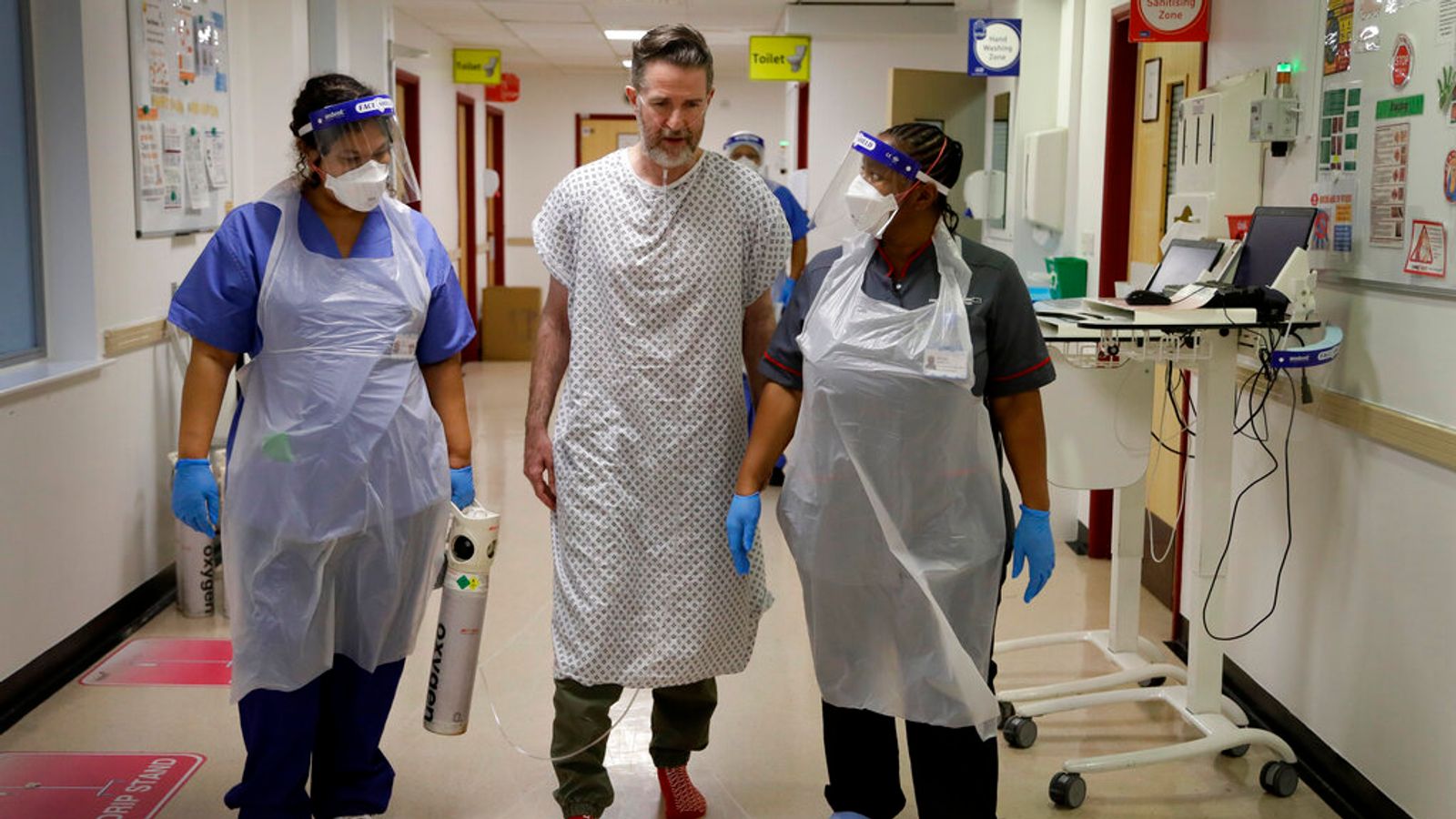Long-term complications from COVID-19 are likely to put “significant strain” on the NHS in the coming years, as they become increasingly common across all age groups, scientists have warned.
The government’s Scientific Advisory Group for Emergencies (SAGE) said 22% of the people it surveyed still had symptoms five weeks after testing positive for COVID-19.
Out of 9,063 people included in its study, 9.8% had symptoms after 12 weeks.
The most common symptoms at five weeks were fatigue (12.7%), cough (12.4%), headache (11.1%), loss of taste and/or smell (10.4%), and muscle aches (8.8%).
SAGE documents published on Friday also warn of the dangers of “long-COVID” in patients of all ages who are admitted to hospital with the virus.
“Complications and worse functional outcomes in patients admitted to hospital with COVID-19 are high, even in young, previously healthy individuals,” they say.
“While patients under the age of 50 years are at lower risk of mortality, we found high rates of complications across all age groups.”
The scientists suggest that government messaging on the “risk coronavirus poses to younger otherwise healthy people” should be increased.
They also believe the risks of long-COVID on the young should be considered when it comes to priority groups for vaccines.
Another SAGE study of 80,388 patients admitted to hospital with the virus between 17 January and 4 August 2020 showed almost half (49.7%) experienced at least one complication.
Complications were most common in men, people aged 30 and over and those with underlying health conditions.
Liver problems were the most common (24.3%), followed by respiratory issues (18.4%) and systemic problems (16.3%).
Patients also suffered cardiovascular issues and a small number (4.3%) experienced neurological complications.
SAGE also stressed that long-term complications of the virus were common across all ethnic groups, as well as age ranges.
It said that while the focus so far has been on mortality rates and whether someone dies of the virus or not, those who survive but suffer debilitating long-term symptoms should now be looked at.
The studies aim to assess the “extent and impact of COVID-19 complications, particularly in those who did not die” in order to “help in the design and provision of services aimed at the post-hospitalisation care of patients”.






















